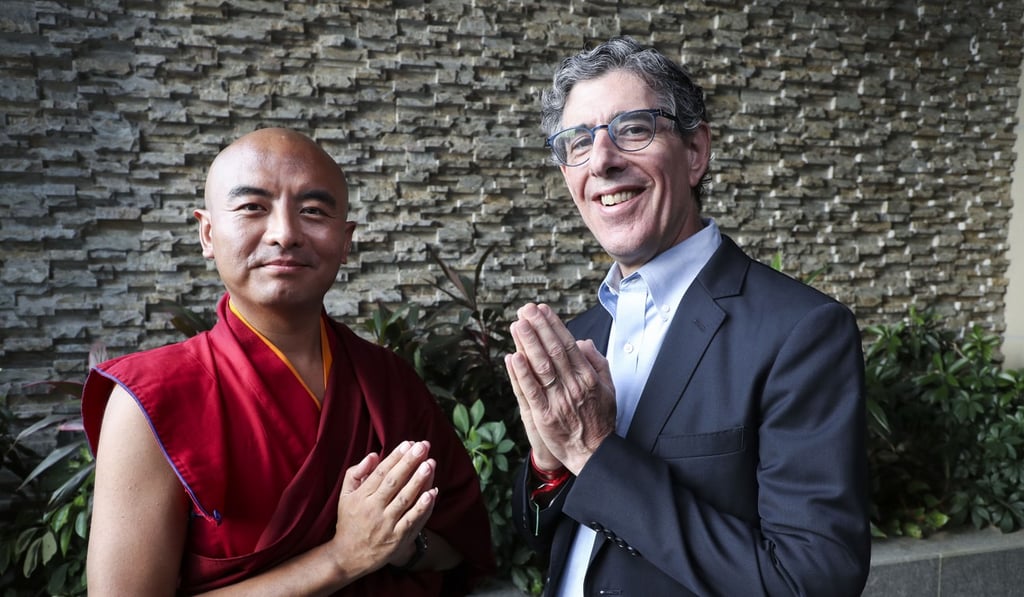How meditation can make Hong Kong healthier and happier, from two of world’s happiest people
Dr Richard Davidson from America’s Centre for Healthy Minds and ‘world’s happiest man’ Yongey Mingyur Rinpoche explain how meditation practitioners can benefit whether they are children in school or adults in the workplace

A quick Google of meditation centres in Hong Kong shows them popping up from the northern reaches of the New Territories to the hills of Lantau to dense urban areas on Hong Kong Island. The city already has an affinity for the ancient practice, but fresh developments at America’s Centre for Healthy Minds at the University of Wisconsin-Madison could amp things up even further.
Dr Richard Davidson founded the centre after decades of research, including studying the brains of Buddhist monks who had spent many years practising meditation. One such experiment landed Yongey Mingyur Rinpoche, a Tibetan lama, meditation teacher and bestselling author, the title “the happiest man in the world”. In 2006, Time magazine counted Davidson among the 100 most influential people in the world.
Both Davidson and Mingyur Rinpoche (Rinpoche is a Tibetan honorific term meaning “precious one”) were in Hong Kong recently for a leadership workshop titled “Master Your Mind, Master Your Success”, a sold-out event that also featured martial arts film star Jet Li – an avid meditation practitioner.
Davidson easily decants the language of science for regular folk to understand, as he does in a new book he co-authored called Altered Traits: Science Reveals How Meditation Changes Your Mind, Brain, and Body. The book suggests that mental exercises provided by phone apps, websites and real-world classes – sometimes collectively referred to as “McMindfulness” – can produce temporary pleasant states. But to develop lasting personality traits such as kindness and compassion, we need smart, targeted feedback from teachers such as Mingyur.

Mingyur makes Tibetan Buddhism practices accessible for the masses. A snippet from his first book, The Joy of Living, gives a taste of his down-to-earth messages: “Every kind word, every smile you offer someone who might be having a bad day, comes back to you in ways you’d never expect.”